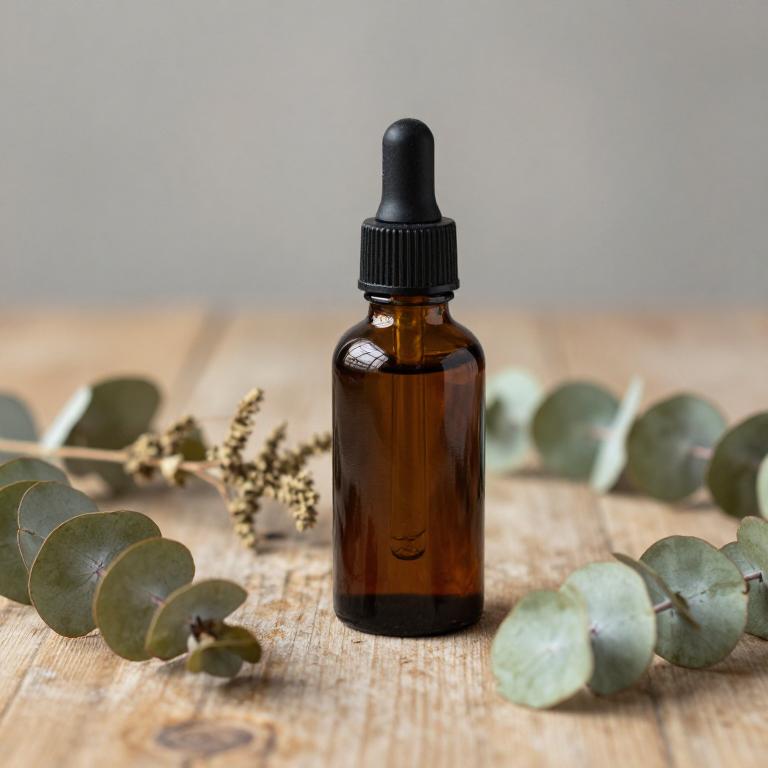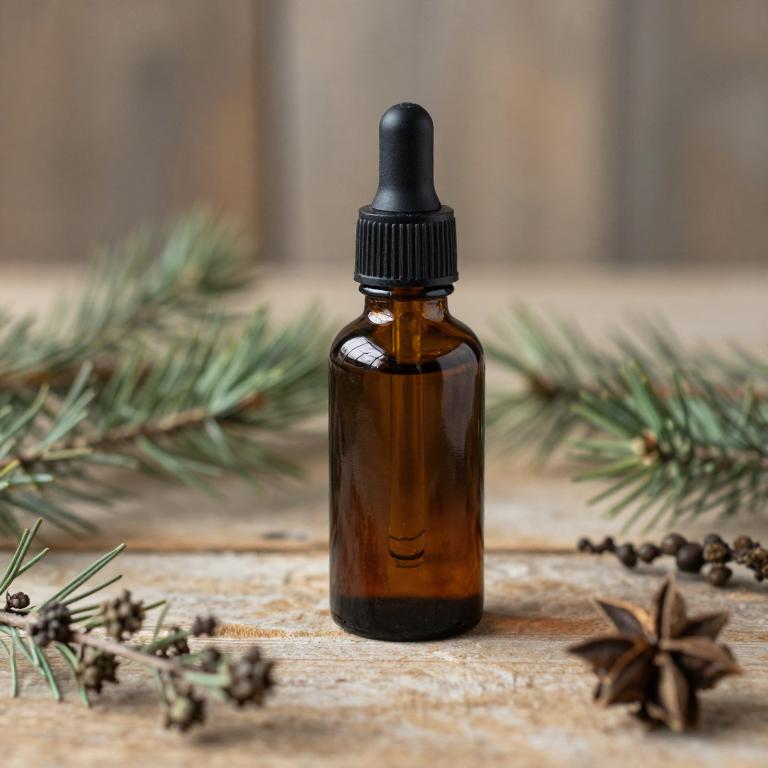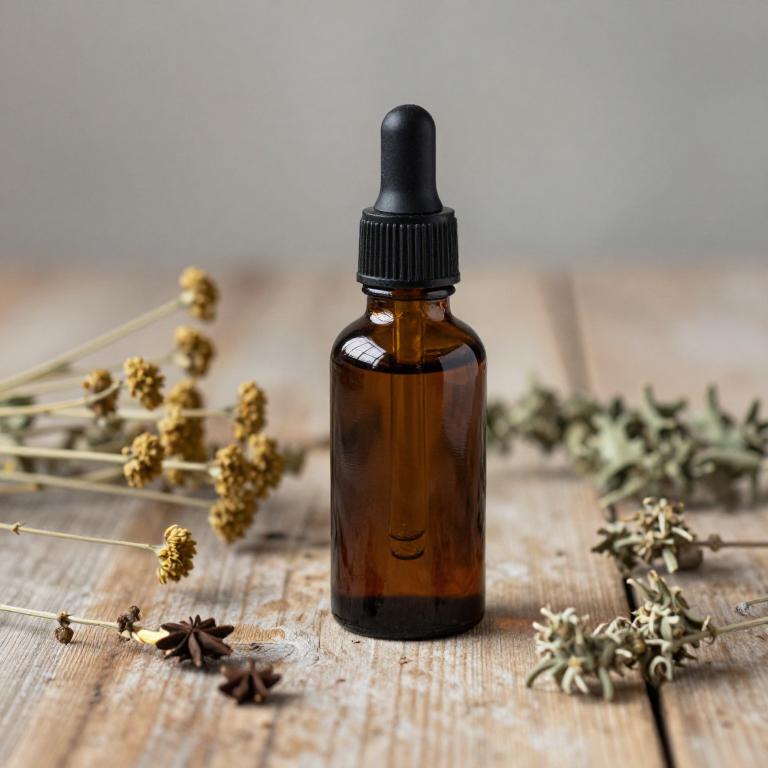10 Best Herbal Tinctures For Acute Bronchitis

Herbal tinctures are concentrated liquid extracts made from dried herbs, often used to support respiratory health and alleviate symptoms of acute bronchitis.
Commonly used herbs in these tinctures include echinacea, thyme, elderberry, and licorice root, which are believed to have anti-inflammatory, antimicrobial, and expectorant properties. When taken as directed, these tinctures may help reduce coughing, ease congestion, and shorten the duration of bronchitis symptoms. However, it is important to consult a healthcare provider before using herbal tinctures, especially for individuals with underlying health conditions or those taking other medications.
While herbal tinctures can be a complementary approach to conventional treatments, they should not replace medical advice or prescribed therapies.
Table of Contents
- 1. Thyme (Thymus vulgaris)
- 2. Eucalyptus (Eucalyptus globulus)
- 3. Ginger (Zingiber officinale)
- 4. Chamomile (Matricaria chamomilla)
- 5. Scots pine (Pinus sylvestris)
- 6. Rosemary (Rosmarinus officinalis)
- 7. Chaste tree (Vitex agnus-castus)
- 8. Peppermint (Mentha piperita)
- 9. Licorice (Glycyrrhiza glabra)
- 10. Parsley (Petroselinum crispum)
1. Thyme (Thymus vulgaris)

Thymus vulgaris, commonly known as thyme, has been traditionally used in herbal medicine for its antimicrobial and anti-inflammatory properties, making it a popular choice for addressing symptoms of acute bronchitis.
The essential oils and tinctures derived from thyme contain compounds like thymol and carvacrol, which exhibit strong antibacterial and expectorant effects, helping to clear mucus from the respiratory tract. When used as a tincture, thyme can be taken orally in diluted form to support the body's natural defenses against respiratory infections. While thyme tinctures are generally considered safe when used as directed, they should be avoided by pregnant women and individuals with known allergies to the plant family.
Overall, thymus vulgaris tinctures may offer a natural and complementary approach to managing the symptoms of acute bronchitis.
2. Eucalyptus (Eucalyptus globulus)

Eucalyptus globulus, commonly known as eucalyptus oil, is a popular herbal tincture used to alleviate symptoms of acute bronchitis due to its anti-inflammatory and expectorant properties.
The tincture helps to reduce mucus buildup in the airways, making it easier to breathe and easing coughing. It also possesses antimicrobial effects that may help combat respiratory infections contributing to bronchitis. Often used in steam inhalation or as a topical application, eucalyptus globulus tincture can provide relief from chest congestion and sore throat.
However, it is important to consult a healthcare provider before use, especially for individuals with asthma or allergies to essential oils.
3. Ginger (Zingiber officinale)

Zingiber officinale, commonly known as ginger, has been traditionally used for its anti-inflammatory and bronchodilatory properties, making it a potential herbal remedy for acute bronchitis.
When prepared as a tincture, ginger extract can be easily absorbed into the bloodstream, allowing for rapid relief of symptoms such as coughing and chest congestion. Studies suggest that ginger may help reduce mucus production and soothe irritated airways, supporting the body’s natural healing process. However, while ginger tinctures are generally safe for most adults, they should be used with caution in individuals with bleeding disorders or those taking blood-thinning medications.
It is advisable to consult a healthcare provider before using ginger tinctures, especially if symptoms persist or worsen.
4. Chamomile (Matricaria chamomilla)

Matricaria chamomilla, commonly known as German chamomile, has been traditionally used for its calming and anti-inflammatory properties, making it a potential complementary treatment for acute bronchitis.
When prepared as a tincture, chamomilla can help reduce inflammation in the respiratory tract and alleviate symptoms such as coughing and mucus production. The active compounds in chamomilla, including flavonoids and essential oils, contribute to its soothing effects on the bronchial passages. However, it is important to consult a healthcare provider before using chamomilla tinctures, especially for individuals with allergies or those taking other medications.
While not a substitute for conventional medical treatment, chamomilla tinctures may offer supportive relief when used as part of a holistic approach to managing acute bronchitis.
5. Scots pine (Pinus sylvestris)

Pinus sylvestris, commonly known as Scots pine, has been traditionally used in herbal medicine for its potential respiratory benefits, including the treatment of acute bronchitis.
The tinctures derived from the resin and needles of this pine species are believed to possess anti-inflammatory and expectorant properties that may help alleviate symptoms such as coughing and mucus congestion. These tinctures are often prepared using alcohol as a solvent, which helps extract the active compounds from the plant material. While some preliminary studies suggest that pine tinctures may support respiratory health, they should not replace conventional medical treatments for acute bronchitis.
It is important to consult with a healthcare provider before using any herbal remedy, especially for individuals with pre-existing conditions or those taking other medications.
6. Rosemary (Rosmarinus officinalis)

Rosmarinus officinalis, or rosemary, is commonly used in herbal tinctures for its potent anti-inflammatory and antioxidant properties, which can help alleviate symptoms of acute bronchitis.
These tinctures are typically prepared by soaking rosemary leaves in alcohol to extract their active compounds, such as rosmarinic acid and flavonoids. The aromatic oils in rosemary may help clear respiratory passages and reduce mucus buildup, making it a popular natural remedy for bronchial irritation. While not a substitute for medical treatment, rosemary tinctures can support respiratory health and provide symptomatic relief when used as part of a holistic approach.
However, individuals should consult a healthcare provider before using rosemary tinctures, especially if they have allergies or are taking other medications.
7. Chaste tree (Vitex agnus-castus)

Vitex agnus-castus, commonly known as chaste tree, has been traditionally used in herbal medicine for its potential respiratory benefits.
While it is not a primary treatment for acute bronchitis, some studies suggest that its anti-inflammatory and antispasmodic properties may help alleviate symptoms such as coughing and mucus production. Vitex agnus-castus tinctures are often used as a supportive remedy to reduce irritation in the airways and promote respiratory comfort. However, it is important to consult with a healthcare provider before using this herb, especially if you are taking other medications or have underlying health conditions.
As with any herbal treatment, the effectiveness of Vitex agnus-castus tinctures can vary, and it should not replace conventional medical care for acute bronchitis.
8. Peppermint (Mentha piperita)

Mentha piperita, commonly known as peppermint, is often used in herbal tinctures to alleviate symptoms of acute bronchitis due to its expectorant and anti-inflammatory properties.
These tinctures can help soothe irritated airways and ease coughing by promoting the removal of mucus from the respiratory tract. The menthol content in peppermint provides a cooling effect that may reduce throat irritation and ease breathing. However, it is important to consult a healthcare provider before using peppermint tinctures, especially for individuals with asthma or gastrointestinal sensitivities.
While peppermint tinctures can be a supportive remedy, they should not replace conventional medical treatments for acute bronchitis.
9. Licorice (Glycyrrhiza glabra)

Glycyrrhiza glabra, commonly known as licorice root, is a traditional herbal remedy that has been used for centuries to support respiratory health.
Its tincture form is often utilized in the treatment of acute bronchitis due to its anti-inflammatory and expectorant properties, which help to reduce mucus buildup and soothe irritated airways. The active compounds in licorice root, such as glycyrrhizin and flavonoids, contribute to its ability to alleviate coughing and ease breathing in individuals with bronchial inflammation. When used as a tincture, glycyrrhiza glabra is typically diluted in water or alcohol and taken in small doses to minimize potential side effects like increased blood pressure.
While it can provide symptomatic relief, it is recommended to consult a healthcare professional before using licorice root tinctures, especially for prolonged periods or in combination with other medications.
10. Parsley (Petroselinum crispum)

Petroselinum crispum, commonly known as parsley, has been traditionally used in herbal medicine for its potential respiratory benefits.
Herbal tinctures made from parsley are believed to support the body's natural detoxification processes, which may aid in the management of acute bronchitis. These tinctures contain compounds like apiol and limonene, which have mild expectorant and anti-inflammatory properties. While they are not a substitute for medical treatment, some studies suggest that parsley may help alleviate symptoms such as coughing and mucus buildup.
It is important to consult a healthcare professional before using parsley tinctures, especially for individuals with pre-existing conditions or those taking other medications.